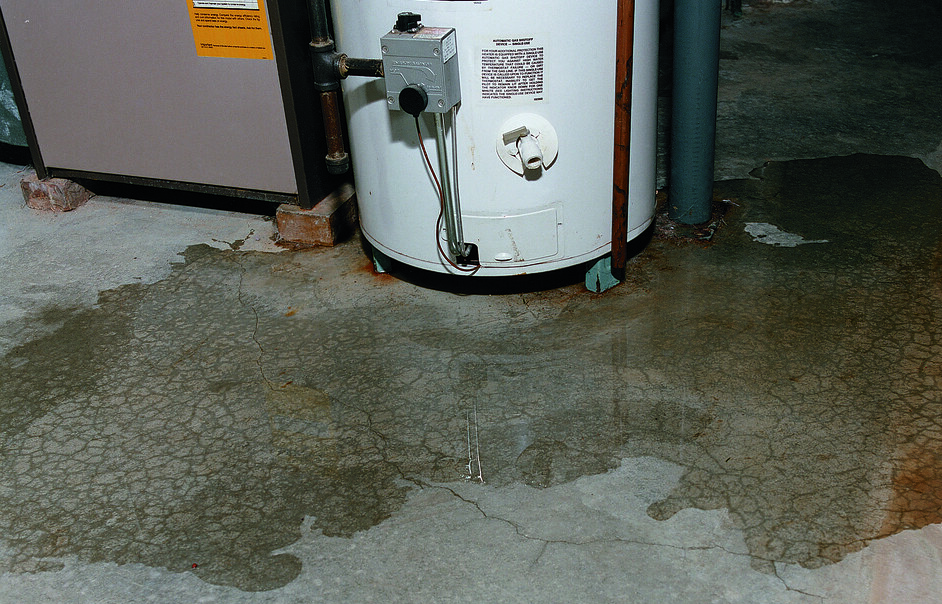Having an Emergency ?
Plumbing 101: These 10 Signs Show Why Your Water Heater Needs To Be Replaced
10 Signs Your Water Heater Needs to be Repaired or Replaced
- Leaks
- Water Coloration
- Unusual sounds from the water heater
- Foul or unusually smelly hot water
- A decline in hot water pressure
- Unusual increase in your utility bill
- Rusting and other physical signs of deterioration
- Running out of hot water quicker than normal
- Inconsistency in water temperature
- The water heater stops heating entirely
Leaks

This is one of the prevalent problems we see with water heaters. While your water heater suffers more when it leaks, your home also suffers the consequences of a leaky water heater. This is because water from the leak drips on sensitive parts of your home. This will most likely cause significant damage to your property.
Below are 7 factors that might cause your water heater to leak:
- Damaged or loose drain valve
- High pressure
- Aging tank
- Inlet and outlet problem
- Temperature and pressure relief valve problems
- Crack from collected sediments
- Interior tank
Now that you know that possible causes of leaks in your traditional or tankless water heater, the next step is to know the location of the leaks. Knowledge of this helps you carry out repairs by yourself or gives your plumber a clear picture of your water heater's problem.
The most recurring leak locations are bottom leaks, top leaks, tank leaks, condensation from room temperature, and undisclosed leaks. If the leak is coming from the bottom, your valve might need tightening. It might also mean that your tank needs replacement.
Other forms of leaks have varying locations and different indications. It would be highly beneficial to contact a reliable plumber in Georgia to fix that. They also provide plumbing services for other related problems that keep you awake at night.
Water Coloration
We have received several questions regarding this. Several people ask "why is the hot water from my water heater rusty or yellowish?" One of the major causes of discoloration in water is a corroded anode rode. Anode rods serve to protect the inside of your water boiler from corrosion.
They attract corrosive elements that would otherwise damage your water heater. However, the anode rod is not immune to that which it protects your water heater from. They also suffer from corrosion. When they are affected, a vacuum is created through which water seeps out.
If this is happening, you will need to replace the anode rod as soon as possible, not just because of the leaks, but because without it, your water heater will suffer greatly from corrosion. Reach out to Patriot for the best anode rods and water heater repairs in Georgia.
Unusual Sounds From The Water Heater
If you are hearing unusual sounds coming from your water heating system, this most likely means that your water heater is old and needs to be replaced as soon as possible.
What usually follows this sound is overheating or other forms of malfunctioning. You can choose to carry out repairs, clean out the sediments, and do other forms of maintenance, but a replacement is inevitable. Water heaters, like cars, develop unusual sounds when they are used for a long time or when they develop a fault.
Just as you would replace an old car or visit a mechanic when your car develops a strange sound, you should consider changing your water heater if it is older or contact an experienced plumber in Georgia to check it out.
Unusual Smell in Water
Have you ever experienced a strange odor in the water from your water heater? What gives water from the heating system a bad smell? Also, how can the bod odor be fixed?
If the water from your water heating system has a strange smell, maybe of rotten eggs or similar, you can have a plumber come and inspect your anode, and check the water for high levels of hydrogen sulfide, or damaged electrical parts.
As mentioned earlier, anode rods serve to keep your water heating system free from corrosion by pulling and capturing all corrosive elements in the water heater. However, the anode rods are not insulated from corrosion and will eventually suffer the same fate they are shielding your water heater from. When you experience the smell of burning or rotting eggs, it is an indication your anode rods need replacement.
If the hot water has a foul smell, it can also be a result of bacteria or an anode rod turning sulfates into hydrogen sulfide. When this occurs, the odor sets in and with it corrosion. A reliable plumbing company in Georgia like Patriot can fix this problem for you effortlessly.
Decline In Hot Water Pressure
Have you noticed reduced pressure of hot water running from your water heater? This is most likely a result of sediments that collect at the base of the heating system. Sediments usually flow into the water heater with cold water. They accumulate over time and cause your water heater to malfunction.
How to get rid of sediments in the water heater?
You can get rid of sediments in your water heater by emptying the water heater. To do this, ensure the cold water valve is turned off, your water heater is turned off, a good draining pipe is attached to the heating system's draining valve, and an outlet is secured.
When all that is set, you can drain all liquid in your water heater. Once you do this, you can let more water flow in, then drain this. Once you drain this, you will finally be rid of the sediments. However, there are more efficient ways to do this, but they are more technical and are only done by experienced plumbers to flush the water heater. Contact us right away to get rid of all the pesky sediments in your water heating system.
Unusual Increase In Utility Bill
Have you noticed an unusual spike in your electricity or water bill (without a corresponding increase in your water usage)?
While other factors might explain the strange spike, if your water heater is malfunctioning and takes forever to heat water, it will surely lead to a rise in the electricity bill. Also, if there is a significant leak from your water heating system that misses your attention, it could ramp up your water bill.
According to this article, a damaged water heater can result in a high electricity bill due to:
a. bad insulation
b. insufficient heating element
c. water heater leakage
d. overheating from a broken thermostat
e. malfunctioning timer
Rusting, Cracks, & Other Physical Signs of Deterioration
Rust is an obvious sign that your water heater is fast aging. Internal rusting and rusting on the valves are often reflected in rusty-tasting water. Once you see any of these signs, you should call a plumber to carry out further inspections and replace your water heater if need be.
Another physical sign is cracking from accumulated sediments or other aforementioned factors that often result in water leaking out. All these point to one fact -- you need to replace your water heating system as soon as possible.
Constantly Running Out of Hot Water More Than Usual
While leaks are the most prevalent problem with water heaters, sediments pose an even greater problem. A lead is noticeable and can easily be fixed, but sediments are different.
If you don't maintain your water heating system and flush it often, sediments settle in your water heater and limit the supply of hot water. The accumulated sediments impair your heating system. Sediments also cause significant damage to the water heater's interior lining. This wears the lining off and exposes the steel beneath to corrosion.
This is why you need to drain your traditional water heating system once a year. If you haven't done this in awhile and run out of hot water relatively quickly, you can contact a plumbing expert in Georgia to have a look and see if your heater needs flushing or replacement.
Inconsistency in Water Temperature
When the thermostat and heating element are faulty, there is a sure tendency to experience fluctuation in the hot water temperature. This is often a sign to replace your thermostat or check the heating element, or you could have a plumbing expert in Georgia inspect it for a better diagnosis.
Water Heater Stops Heating Water All Together
Now and then, we get the question "why is my water heater not heating?" Before you panic and order a replacement, do this instead:
- Check the circuit breaker
- Check for a faulty fuse
- Check the heating element (if those 2 are in order)
It is better to do this before requesting a plumbing service. If your water heater runs on gas, turn off the main valve and inspect the pipes for signs of wetness or odor. If you find a leaky gas pipe, do not panic. Shut off the main gas supply and contact the utility company when you are far away from the leak.
If after the aforementioned checks you don't find any fault and the problem persists, consider calling a reliable plumber in Georgia.
A Foolproof Guide to Maintaining Your Tankless Water Heater
- Invest in a good tankless water heater filter
- Flush and descale your water heater with vinegar
- Service the air filter
- Routine Inspections
- Routinely clean internal parts
Invest in a Good Tankless Water Heater Filter
Without an inlet filter, scale-forming minerals and other elements like sediments will affect your heater's health and performance. Tankless water heater filters are great for maintaining the necessary GPM flow rate.
The meshed filters protect your tankless water heater from incoming scales which potentially slow down the flow rate and cause severe damage to the heating system.
Flush and Descale Your Tankless Water Heater
As long as your heater receives water from and external source, it is most likely going to have chemicals, bacteria, and sediments build up. It gets worse if your anti-scales or inlet filter is malfunctioning. The buildup from this will be detrimental to the health of your water heater.
We discussed a bit about flushing earlier, but here is a breakdown of the necessary steps for flushing if you do not want a professional plumber in Georgia to handle the flushing.
Service the Air Filter
Your tankless water heater obviously needs water to function. However, air is also a requisite fuel that oils its performance. If the air filter is bad or malfunctions, your water heater would suffer.
You need to vacuum or clean your air filter occasionally to ensure a free flow of air through the vents. Or you could call a professional plumber in Georgia to handle that.
Routine Inspection
Lastly, like most things in life, water heaters need routine inspection to ensure they are operating properly. Form a habit of performing routine inspections on your water heater or having a professional visit yearly to check and make sure everything is in order. If you are routinely having your water heater inspected, you can prevent big issues that might require a full water heater replacement.
You might also like




The region's leading professional plumbing, HVAC and Electrical company.
Privacy Policy
Patriot Best of the Best Video
Navigation
Services
Working hours
- Mon - Sun
- Open 24 Hours
All Rights Reserved | Patriot Heating, Cooling & Plumbing Powered By Sculpt Marketing & Consulting







